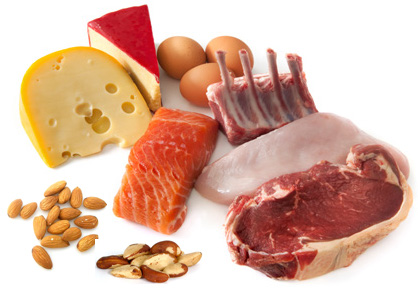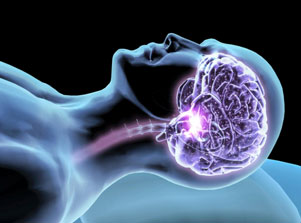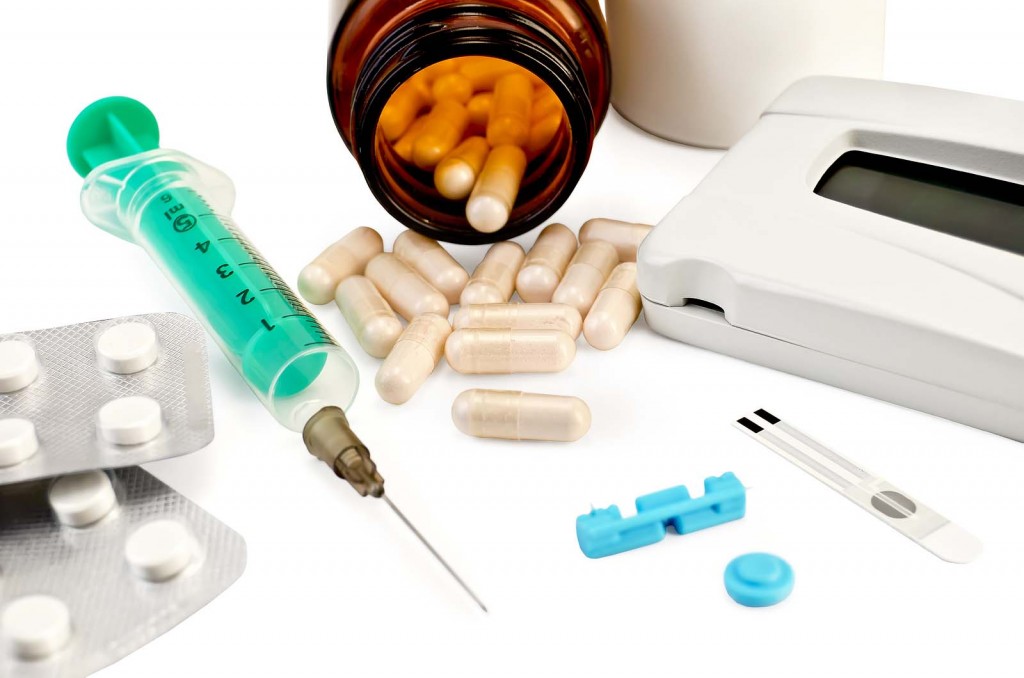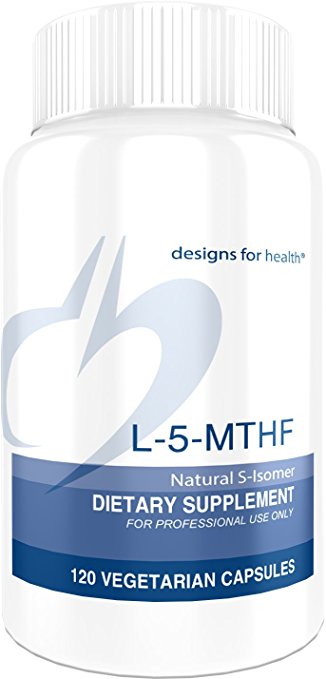Before we dive into the research, I think it’s important to share a disturbing statistic with you.
A recent report in the journal Obesity used data from the National Health and Nutrition Examination Survey to determine that 17.4% of children (aged 2-19) met the criteria for class 1 obesity in 2013-2014.
The sad part being, that the advice still hasn’t changed; when clearly it needs to, and clearly it should’ve happened 30 years ago. Before obesity was the epidemic it is today, and before kids were getting delivered a life-sentence of fatness and sickness, and a future of pain, degeneration, and early death.

Harsh? Maybe; but it’s the truth. And the reason I mention it, is because it appears the only thing we can do now is try and help those around us understand that there’s a better way. As unfortunately, the push-back and petitions to the government aren’t working, and the doctors and dieticians continue to sing the gospel that got us here, and push the same drugs that make things worse (1, 2, 3, 4)
Anyways, my apologies for the rant. But perhaps it provided a little motivation to educate those you love – as realistically, you may be their only hope.
Nutrition
A new study in the FASEB Journal outlines the beneficial impact of a low-carbohydrate ketogenic diet for individuals with Type 2 Diabetes. Specifically discussing it’s ability to improve brain function with ketones, since the insulin resistant (starving) cells can utilize it as fuel.
Evidence from the journal of Clinical Nutrition reiterates the importance of protein for gaining and maintaining muscle and strength. Showing that 30-45g at each meal is associated with greater lean mass and strength in the legs.
Speaking of protein, this study from Applied Physiology Nutrition & Metabolism used an amino acid oxidation indicator to show that the current protein requirements are seriously underestimated (by 30-50%). With the evidence suggesting that 1.5-2.2g per kg of bodyweight from “a variety of high-quality proteins” is more appropriate.

In Live It NOT Diet!, I recommend choosing dark roast coffee’s when possible because it has less caffeine and more antioxidants. And interestingly, this study from the journal Nutrition shows that this equates to greater metabolic benefits when compared to light roasts – in the form of increases in glucose tolerance and insulin sensitivity, decreases in oxidative stress (not surprisingly), and elevations in omega-3 fatty acids.
A high fat diet appears to support better sleep patterns according to this study. Which is a refreshing finding (that’s worth bookmarking) considering it’s often claimed that sleep is poor when carbs are low.
Salt reduction advice is about as useful as telling a guy with a broken leg to walk less, because the problem isn’t the salt, it’s the insulin resistance, obesity, and elevated triglycerides. This study in The Lancet echoes that point by showing that:
“high sodium intake is associated with an increased risk of cardiovascular events and death in hypertensive populations (no association in normotensive population).”
In other words, cut the carbs, fix your metabolic derangement, and you can eat as much salt as you like.
Fitness
Though it’s common to think big heavy weights are required to make big heavy muscles, all that’s required is stress. Which in the case of this study in the Journal of Applied Physiology, was applied via Time Under Tension (TUT) and repetition failure. As those lifting loads of 30-50% of their 1-rep max had hypertrophic gains to those using 70-90%.
An interesting paper in the journal Nature discusses the major differences between the metabolic rates in humans compared to apes (400-800kcal). Something the researchers attribute to a much bigger brain and higher reproductive output; and not surprisingly, the same areas that suffer in a chronic caloric deficit.
Higher levels of low-intensity physical activity appear to be associated with lower rates of various cancer types (liver, lung, endometrial, colon, bladder, breast, rectal) according to pooled data from 12 U.S. and European cohort studies published in JAMA Internal Medicine. The experiment isn’t air-tight by any means, as it’s based on self-reported information, but the associations were quite strong even after adjusting for body size and smoking habits.

A new study on twins should make you want to exercise (if you’re not already), as it shows that inactive ones have 31% more intra-abdominal (visceral) fat on average than their active sibling. Suggesting that sometimes what shows up on the outside isn’t exactly the best gauge of health, and re-iterating that the reasons for exercising extend well-beyond cosmetic changes.
And if that’s not enough for you, this research study showed that the addition of exercise to a ‘Paleo Diet’ resulted in:
- More Fat Loss – 6.7kg vs 5.7kg
- Greater reductions in HbA1c – 1.1% vs 0.9%
- Less decreases in Leptin – 42% vs 62%
- Better lean muscle retention – 1.2kg loss vs 2.6kg loss
Which I’d imagine could’ve been better with resistance training only, as opposed to a combination of resistance training and aerobic training.
Or you could lift weights 2x per week and lower your risk of mortality by 46%. As that’s what this study in the journal Preventative Medicine found over a 4-yr period for those over 65 years over age.
Lifestyle
We’ve talked about the importance of sleep quality as it relates to hunger and satiety hormones, insulin sensitivity, and muscle gain or loss, but no so much the direct affect it can have on your brain. This study from the journal Neurobiology and Aging shows that poor sleep quality actually increases beta-amyloid accumulation in the brain, and appears to do so independently of any disruptions in glucose metabolism.

Night-shift workers have always been a great example of showing the long-term implications of sleep sacrifice; and this recent study in the Journal of the American Medical Association re-establishes that point, by showing an increased risk of coronary heart disease for nurses working >3 night shifts per month.
Similarly, the evidence continues to mount for reducing your blue light exposure in the evening (3hrs in this study). Since it alters glucose tolerance, leads to higher peak blood sugar levels, and puts you an increased risk of diabetes and other diseases related to hyperglycemia.
After nearly a decade of hand-sanitizing and germaphobing ourselves too death, the evidence continues to surface that gettin’ a little dirty is a good thing. With a study in the journal PNAS showing reduced inflammation in the gut and an increased resiliency to stress with soil bacteria (Mycobacterium vaccae) injections in mice.
Health & Longevity
If you have the time, this piece in the New York Times is worth reading. As it discusses the life of German biochemist, Otto Warburg, who was the first to show that cancer cells thrive on glucose (the Warburg Effect), and suggest that cutting off the sugar supply is the best way to starve tumors. Also discussed in this recent paper in The FASEB Journal.
When The New Read Meat Scare comes out again next year, be sure to have this systematic review and meta-analysis cued up for your Facebook followers. It found that eating a ½ serving of red meat per day (35g or 1.25oz) did not increase cardiovascular disease risk when compared to eating < ½ serving per day….based on 25 meticulously analyzed randomized controlled trials.
Nothing new here, but this study shows that a low-carb diet is effective for lowering all factors related to the metabolic syndrome (weight, HbA1c, triglycerides, small-dense LDL cholesterol, etc) in hypertensive individuals with Type 2 Diabetes. In fact, 63% of the 72 middle-age participants stopped using or reduced their diabetes medication over the course of the 70-day study.

According to this paper, 25% of US adults are now dealing with elevated triglycerides (hypertriglyceridemia); and as the researchers discuss (and we’ve discussed), this is a far better risk factor for cardiovascular disease than LDL cholesterol.
“Although low-density lipoprotein cholesterol (LDL-C) remains the primary treatment target to reduce CVD risk, a number of large-scale epidemiological studies have shown that elevated TG levels are independently associated with increased incidence of cardiovascular events.”
Medication & Supplementation
This commentary in the journal Science discusses the major implications of antibiotic use. Which as we’ve discussed in the past, includes the elimination of beneficial gut bacteria; resulting in bad bacterial overgrowth and an increased risk of future intestinal permeability.
Sadly, antibiotic use could also mean the prevention of new brain cell growth in the hippocampus. As according to this study on mice in the journal Cell Reports, those who had their healthy gut bacteria wiped out by antibiotics showed a loss of neurogenesis (new brain cells) in a section of their hippocampus that typically produces new brain cells. Something they believe could be related to reduced white blood cells, called Ly6Chi monocytes normally found in the brain, blood, and bone marrow.
Children with a genetic susceptibility to develop Type 1 Diabetes, saw a reduced risk of developing the autoimmune condition with probiotic supplementation in the first 4 weeks of life (0-27 days). Providing additional hope that maintaining a healthy gut can help treat (and even prevent) these devastating and life-altering conditions.
Telomere length is an important biomarker for aging, and new evidence from the Annals of Nutrition and Metabolism found that mothers supplementing Folate (L-5-MTHF) during pregnancy produced children with telomeres 10% longer than those taking none.
Grain and fiber-bashing is something I’ve been doing on here for a while (1, 2, 3, 4, 5, 6, 7); and as this study in the Journal of Cancer demonstrates, with good reason. As compared to a probiotic (L. casei) supplement that reduced the reoccurrence of colorectal tumors by 24%, a wheat-bran fiber supplement increased reoccurrence by 31%.
An experiment in the Journal of the American College of Cardiology gave 229 patients with chronic heart failure 4,000IU’s of supplemental vitamin D3, and found significant improvements in cardiac function after 1 year.
Lastly, a new study from Tyumen Medical University in Russia found that 2 weeks of Melatonin supplementation (1.5mg per night) lowered blood pressure and enhanced circadian rhythm in 97 men and women between the ages of 63 and 91. But generally, this isn’t something I’d recommend. Considering magnesium tends to work well for most, and historically a supplement with tryptophan tends to help you secrete your own melatonin; which seems to be a better long-term strategy.
Stay Lean!
Coach Mike
RELATED ARTICLES:
More Antibiotic = Less Probiotic
How Poor Sleep Makes You Fat & Sick

